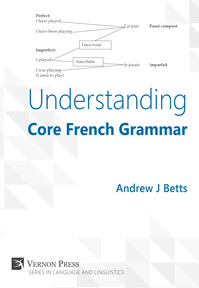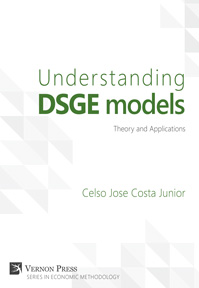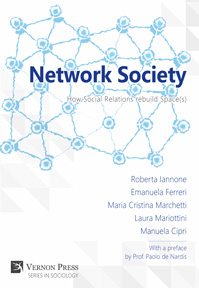Search
Browse
by Publication status
by Subject
Anthropology (26) Art (124) Business and Finance (26) Cognitive Science and Psychology (54) Communication and Journalism (45) Economics (62) Education (66) History (149) Human Geography (22) Interdisciplinary (42) Language and Linguistics (129) Law (16) Music Studies (18) Philosophy (157) Political Science and International Relations (103) Sociology (304) Statistics and Quantitative Methods (20)by Series
Series in Literary Studies (65) Series in Philosophy (59) Series in Education (51) Series in Sociology (42) Series in Politics (32) Series in World History (32) Bridging Languages and Scholarship (31) Series in Language and Linguistics (25) Cognitive Science and Psychology (20) Series in American History (20) Series in Philosophy of Religion (20) Series in Art (19) Critical Perspectives on Social Science (16) Series in Cinema and Culture (16) Curating and Interpreting Culture (15) Series in Critical Media Studies (14) Series on the History of Art (14) Series in Anthropology (13) Series in Business and Finance (13) Economics (13) Series in Music (12) Series in Communication (9) Series in Performing Arts (9) Philosophy of Personalism (8) Series in Law (8) Series in Economic Methodology (7) Series on Climate Change and Society (7) Women's Studies (7) Classics in Economics (6) Series in Economic Development (6) Philosophy of Forgiveness (5) Series in Built Environment (5) Series in Economic History (5) Series in Philosophy of Science (4) Series in Social Equality and Justice (4) Series on the History of Science (4) Serie En Estudios Literarios (3) Serie en Sociología (3) Series in Contemporary History (3) Series in Creative Writing Studies (3) Series in Design (3) The Interdisciplinary Built Environment (3) Serie en Comunicación y Medios (2) Serie en Historia (2) Series in Heritage Studies (2) Series in Innovation Studies (2) Series in Philosophy of Race (2) Serie en Ciencias Políticas (1) Serie en Entorno Construido (1) Serie en Estudios Culturales (1) Serie en Filosofía (1) Serie en Filosofía de la Ciencia (1) Serie en Música (1) Series in Classical Studies (1) Series in Economics of Technological Change (1) Series in Urban Studies (1)by Language
English Spanishby Author
Understanding Core French Grammar
Andrew J Betts, Lancing College
Availability: In stock
165pp. ¦ $30 £25 €28
This book contains an explanatory treatment of the core areas of difficulty for the English speaking learner of French. It deals with the key issues in tense formation and use and verbal structures and processes such as negation, passives and subjunctives along with a highly exemplified treatment of pronouns and a section dealing with adjectives and other elements of the grammar. It fills a gap between general text books of French in which grammatical issues are frequently treated piecemeal and scattered throughout the book in between more communicative information on one hand and exhaustive reference grammars aimed at graduate and research students on the other which would be beyond the level of intellectual maturity of most school children and some non-specialist undergraduates. It has the advantage of treating each grammatical issue in detail but without being too long-winded, explaining the systems and processes which underlie the facts of the language. The emphasis is on explanation and not merely the listing of facts, enabling the learner to master the system and become an independent user of the language. It could be used highly successfully either as a classroom aid alongside the more usual textbooks which are organized typically around topics and themes in society or for self-study for the committed individual learner of any age. There are extensive exercises and answers for all topics covered.
Understanding DSGE models
Theory and Applications
Celso Jose Costa Junior, São Paulo School of Economics, Brazil
Availability: In stock
280pp. ¦ $70 £58 €65
While the theoretical development of DSGE models is not overly difficult to understand, practical application remains somewhat complex. The literature on this subject has some significant obscure points. This book can be thought of, firstly, as a tool to overcome initial hurdles with this type of modeling. Secondly, by showcasing concrete applications, it aims to persuade incipient researchers to work with this methodology. In principle, this is not a book on macroeconomics in itself, but on tools used in the construction of this sort of models. It strives to present this technique in a detailed manner, thereby providing a step by step course intended to walk readers through this otherwise daunting process. The book begins with a basic Real Business Cycle model. Subsequently various frictions are gradually incorporated into a standard DSGE model: imperfect competition; frictions in prices and in wages ; habit formation; non-Ricardian agents; adjustment cost in investment; costs of not using the maximum installed capacity; and finally, Government.
Questioning History
16 Essential Questions That Will Deepen Your Understanding of the Past
June 2016 / ISBN: 978-1-62273-105-3Availability: In stock
350pp. ¦ $45 £33 €38
Since the days of the Ancient Greeks, history has been perceived as the academic study of the past. Unfortunately, it has generally been taught as a litany of rigid, boring facts intended to be accepted rather than questioned. This has been reinforced for decades by weighty textbooks that overwhelm the reader with mind-numbing details presented in a chronological sequence. The end result is that students see little relevance of what they learn in history class to the real world, and many simply struggle to stay awake. Compared to other subjects taught at the secondary level, history is frequently judged to be the most boring. This is largely because it is viewed as an intellectually lifeless subject that presents few opportunities for active engagement. Questioning History is a book built around 16 essential questions designed to challenge this common assumption. Each question is broad, open-ended and subject to vigorous debate. By examining the historical background behind each question and by analyzing the ways in which the question can be answered, the reader will come away with a deeper understanding of the past and a new appreciation for history as a cognitively dynamic subject. In addition, by using each chapter as a platform for engaging discussions and Socratic seminars, the reader will be able to refine the decision-making skills necessary for effective citizenship in a democratic society. Depending on the classroom or the setting in which it is being used, Questioning History can either take the place of the more traditional textbook or at least be used as a supplement to make it come more alive. The best way to learn and to appreciate a subject is through active engagement. Questioning History provides a shot of adrenalin to the study of history.
Self, History and Future
A work on the modality of history
July 2016 / ISBN: 978-1-62273-473-3Availability: In stock
188pp. ¦ $45 £30 €40
Be it Foucault’s insight into a society based on ‘power-knowledge’ or Fukuyama’s attempts to predict the future based on the end-game situation of ‘liberal democracy’, both are like trying to work out a curvature of a line from a given point by using pre-calculus maths. No amount of elaborate narratives based on a quasi-dynamic, phenomenological concept like ‘discourses’ or a static concept like ‘liberal democracy’ will capture the dynamism of moving events and their fluid directions called ‘future’. You need the methodology of operative concepts that process moving events. My essay is based on a holistic and dynamic concept with logical progressions. Instead of capturing movements as a still picture I try to record constantly changing situations in terms of modality of history. It is the necessity of tangencies and encompassments for Circles of Identity (CI) that forms history. The momentum of ‘self’ that bridges the past and the future is the propellant of CIs, which follows certain rules to suggest our destiny.
Network Society
How Social Relations rebuild Space(s)
Roberta Iannone, Sapienza University of Rome, Italy
et al.
Availability: In stock
230pp. ¦ $70 £55 €60
The present volume attempts to critically evaluate claims that modern society may be read and understood as a network. Accepting that this perspective holds some potential, the question becomes how to best capitalize on it. To analyze society as a network means to respond not only to the “actual needs”, but also to highlight the "opportunities" and the "utilities", and to investigate whether society is increasingly relational or just perceived as such, as e.g. digital "social networks" and related concepts exemplify. From a strictly scientific perspective to answer the question "how to" read society as a network means to ask ourselves: a) if the conceptual categories (especially the concepts of structure and exchange) and the paradigms of traditional analysis (holism and individualism, both in the functionalist and the conflictive versions) are still sufficient; b) if new conceptual categories/theories/instruments are needed to represent more properly the reality we face: to investigate it, to explain it or, at least, to understand it. Starting from a reflection on already established social networks (Scott, 2003), the fundamental differences between groups and networks (Vergati, 2008), the logics of networks (Serra, 2003) as well as social capital formation and links (Di Nicola, 2006; Mutti, 1998), we seize the spatial dynamics, seemingly following opposite paths, but which revert to a common denominator: de-spatialization and re-spatialization, namely the processes of dematerialization of space(s) and its reconstruction by specific relational dynamics and forms. The study of networks is therefore not attributable to a single theory but to several theories converging towards a unique perspective (spaces) and logical reasoning (Serra, 2001) each one with its own uniqueness. The strength of this volume and the difference with respect to other attempts at explaining the Network Society lies in the multidimensional and interrelated perspectives it offers emerging from converging multidisciplinary perspectives (sociological, anthropological and linguistic), and from applications that the Network Society provides, namely, international (European Governance), institutional, public (linguistic landscape of the city of Rome) and mediated ones (communication technology).






